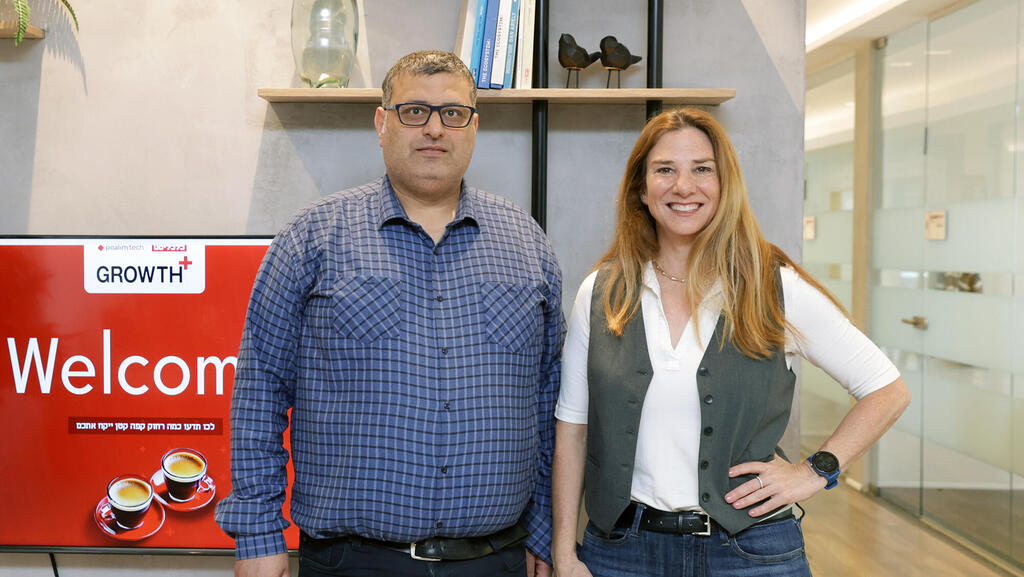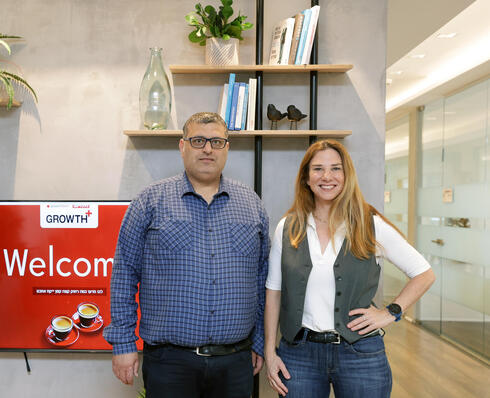
"Customers don't always give real feedback"
As part of the Growth+ project by Calcalist and Poalim Tech, Tami Mazel Shachar, former CEO of Incredibuild, advised Zakher Shalah, CEO of qaTT, to ask customers questions that he "might not want to hear the answers to" in order to understand whether he is on the right track.
In a candid exchange bridging experience and innovation, Tami Mazel Shachar, former CEO of Incredibuild, sat down with Zakher Shalah, founder of the DevOps startup qaTT, to discuss the hard truths of entrepreneurship, the power of humility, and the challenges of scaling early-stage ventures. The meeting was part of the Growth+ initiative by Calcalist and Poalim Tech, aimed at fortifying Israel’s high-tech ecosystem through intergenerational mentorship.
Tami, tell us about a crisis you faced early on in your career and what young entrepreneurs can learn from how you handled it.
Mazel Shachar: "Falling in love with your own product is a mistake. In the beginning, you only hear from customers what you want to hear. You ask how the product is, and they say, 'I have a deadline—it’s working great,' which doesn’t actually give you real feedback. Later, you don’t understand why they aren’t willing to pay or why things aren’t going the way you thought.
"One of the things I learned very early on is to ask the hard questions from the start: What value are you getting from this product? Would you pay for it? What real problem does it solve, and what are the alternatives? You need to be able to ask uncomfortable questions—ones you might not want to hear the answers to—in order to know if you're on the right track."
Zakher, what has been your biggest challenge this year?
Shalah: "One of my biggest challenges has been finding partners who believe in the same dream. In the early stages, it’s hard to raise money, and you need people around you with an entrepreneurial spirit—people who want to build the product with you."
Tami, what advice did you give him about that?
Mazel Shachar: "The DevOps market is very challenging—users are smart and often know how to build their own tools. So it’s crucial to define the value precisely: What does your product give customers that they can't do themselves? Is it about saving time, improving processes, reducing costs? You have to be exact about what the DevOps users will get that they otherwise wouldn’t—does it save time? Money? How do you measure that, and what do you compare it to?
"This kind of clarity comes from your customers and from outside feedback. And it’s one of the most critical things if you want to raise money at this stage."
Related articles:
What did you learn from each other?
Shalah: "I learned from her not to be shy. To let go of ego and approach customers with a positive attitude—not to push for a sale, but to really help improve someone’s life by saving them time or money."
Mazel Shachar: "I learned from him the excitement of creation. Here’s someone who thought of a product that’s needed, who’s using new technologies like AI, and who stays enthusiastic despite the challenges. That kind of belief and positivity is always the foundation for technological progress in this country."
Was there anything surprising you learned about each other?
Mazel Shachar: "I learned that Zakher’s name in Arabic means 'male rain.' I speak a little Arabic, so I know it’s a poetic expression for blessed or fruitful rain. It’s a very rare name in Arab society. His father chose it to carry a message of positivity."
Shalah: "I was surprised by how easy it was for me to connect with Tami. It’s usually hard to approach CEOs, but I felt comfortable with her from the first moment—to the point that I even told her about my wife, which is not something I usually do."
